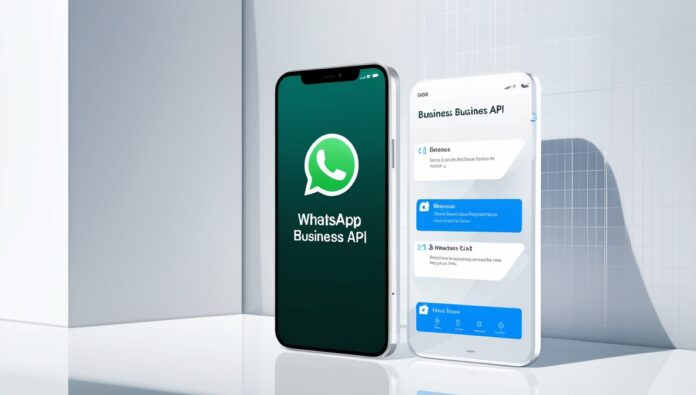In today’s digital-first economy, communication is the cornerstone of successful business operations. For small businesses striving to scale, maintaining a consistent, personalized, and efficient communication channel with customers can be a game-changer. Enter the WhatsApp Business API, a powerful tool that’s rapidly becoming the secret weapon for small enterprises looking to expand. Paired with intelligent solutions like the WhatsApp chatbot, the API is helping businesses automate, personalize, and elevate their customer interactions like never before.
The Rise of WhatsApp in Business Communication
WhatsApp boasts over 2 billion active users globally, making it one of the most widely used messaging apps in the world. Naturally, this ubiquity makes it an ideal platform for business communication. The WhatsApp Business API is designed for medium and large businesses to communicate with their customers at scale, but it has become increasingly accessible to small businesses thanks to integration platforms and chatbot development tools.
Unlike the basic WhatsApp Business App, which is limited to a single device and user, the API version enables multiple users, integrations with CRM systems, and automated messaging—all key capabilities for scaling operations.
Why the WhatsApp Business API is a Game-Changer for Small Businesses
1. Automated Customer Support
One of the most transformative features of the WhatsApp Business API is its ability to support automation via a WhatsApp chatbot. Small businesses, which often have limited customer service staff, can use chatbots to respond to frequently asked questions, guide users through product catalogs, assist with order tracking, and more. This 24/7 support enhances the customer experience while reducing operational costs.
For instance, a small e-commerce boutique can deploy a chatbot that instantly answers questions about product availability, shipping timelines, and return policies—freeing up staff to focus on more complex queries and strategic tasks.
2. Streamlined Sales Funnels
Sales cycles can often be delayed by slow or inconsistent communication. A WhatsApp chatbot integrated with the API can guide potential customers through the entire sales funnel, from initial inquiry to final purchase, all within the chat interface. By offering quick responses and personalized suggestions, businesses can significantly reduce drop-offs and increase conversion rates.
Additionally, businesses can send automated follow-ups, promotional messages, or even abandoned cart reminders via WhatsApp, increasing the chances of closing a sale.
3. Rich Media Support
The WhatsApp Business API allows small businesses to share images, videos, documents, and location pins within chats. This is particularly beneficial for businesses in fashion, food delivery, real estate, and other visually-driven industries. A WhatsApp chatbot can be configured to show image carousels of products, share demo videos, or send PDF brochures to users—creating a highly engaging and informative customer experience.
4. CRM and Third-Party Integration
Scaling a business requires efficient back-end systems. The API’s ability to integrate with CRM platforms, payment gateways, and inventory management tools means that small businesses can operate like much larger enterprises. When paired with a WhatsApp chatbot, this integration can create seamless workflows—like checking customer order history before suggesting a product or confirming payment instantly after a purchase.
This kind of smart automation not only saves time but also enhances personalization, which can dramatically improve customer satisfaction and loyalty.
Real-World Success Stories
Many small businesses across different sectors have already begun reaping the benefits of the WhatsApp Business API and WhatsApp chatbots:
- Local Grocery Stores: During the pandemic, many local grocers in India and Brazil adopted WhatsApp to take orders. With the help of simple chatbots, customers could browse products, place orders, and get delivery updates—all without downloading a new app.
- Boutique Clothing Brands: Independent fashion labels use chatbots to handle queries about sizes, stock availability, and order tracking. Some even allow users to virtually “try on” clothes using AR integrations shared via WhatsApp.
- Educational Services: Small ed-tech startups are using WhatsApp bots to onboard students, deliver learning materials, and provide schedule reminders. The familiarity and accessibility of WhatsApp make it a highly effective educational tool.
Key Benefits of Using WhatsApp Business API with a WhatsApp Chatbot
Benefit
Description
Scalability
Handle thousands of messages simultaneously without hiring more staff.
24/7 Availability
Bots provide instant support round-the-clock.
Personalization
Use customer data to tailor messages and product recommendations.
Global Reach
Communicate with customers worldwide in a language they understand.
Cost-Effectiveness
Reduce support costs and increase ROI through automation.
Getting Started: How Small Businesses Can Implement WhatsApp Business API
Step 1: Apply for WhatsApp Business API Access
You’ll need to apply through Meta or a trusted Business Service Provider (BSP). Approval typically requires a verified Facebook Business Manager account and a registered business phone number.
Step 2: Choose a Platform or Build Your Own Bot
You can build a WhatsApp chatbot using platforms like Twilio, WATI, or Gupshup. These platforms offer user-friendly interfaces and templates that make it easy to design chatbots without any coding knowledge.
Step 3: Integrate with CRM and Other Tools
Connect your WhatsApp interface with CRM tools, email marketing platforms, and inventory systems to fully leverage automation and personalization features.
Step 4: Monitor and Optimize
Use analytics dashboards to track message delivery, response rates, and customer satisfaction scores. Continually refine your bot’s responses and workflows to improve performance.
Best Practices for Using WhatsApp Chatbots
- Be Transparent: Let users know when they’re interacting with a bot.
- Provide Human Escalation: Offer an option to talk to a live agent when needed.
- Keep it Conversational: Avoid sounding robotic—use a friendly and approachable tone.
- Stay Compliant: Adhere to WhatsApp’s business messaging rules, including opt-in policies.
The Future: More AI, More Integration, More Opportunity
The combination of AI-powered WhatsApp chatbots and the WhatsApp Business API is only getting stronger. With advancements in natural language processing (NLP) and machine learning, bots are becoming more intelligent, context-aware, and capable of complex interactions.
As small businesses continue to embrace digital transformation, WhatsApp offers an unparalleled platform to connect with customers, streamline operations, and grow rapidly with minimal resources. From automating basic FAQs to managing entire sales pipelines, the potential is enormous—and it’s just beginning.
Scaling a small business doesn’t have to be a resource-intensive endeavor. By leveraging the WhatsApp Business API and deploying a smart WhatsApp chatbot, businesses can provide excellent customer service, streamline their operations, and grow their customer base—all through a platform their audience already uses daily. In the race for digital efficiency and customer satisfaction, WhatsApp is not just an option—it’s becoming a necessity.

